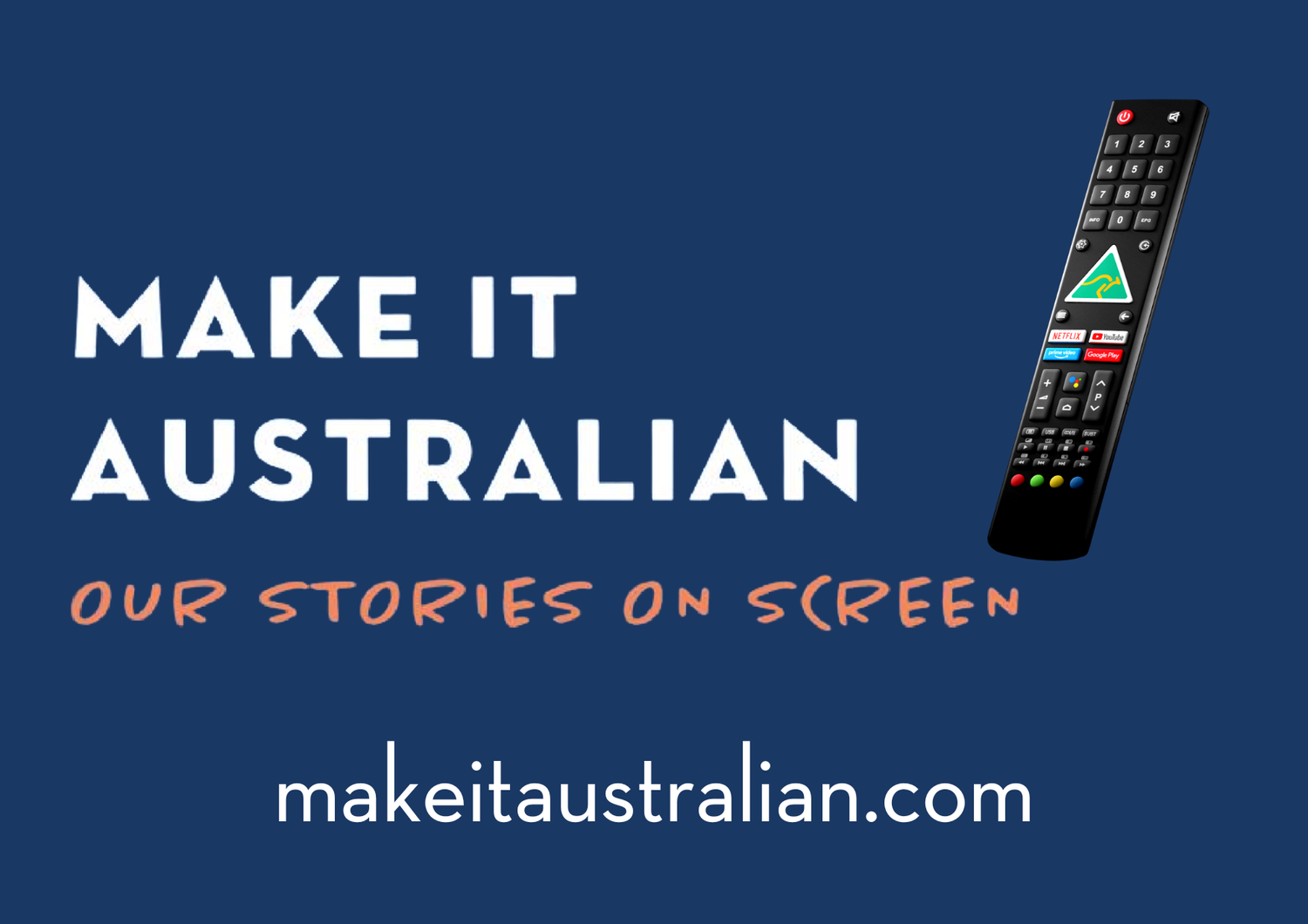Leading Australian actors, crew, writers and producers are in Canberra this week in a united push to convince Parliament to introduce local content requirements for booming digital viewing platforms and make other necessary reforms to ensure a bright future for Australian screen stories.
The screen industry delegation includes Australian actors Simon Baker, Bryan Brown, Marta Dusseldorp and Justine Clarke, CEO of Flying Bark Productions Barbara Stephen and Co-Founder of Blue Rocket Productions, David Gurney.
“Governments over many decades have recognised our need to experience our own stories told in our own voices, whether it’s on TV or at the movies. With streaming platforms such as Netflix, Stan and Disney+ notching up 16 million Australian subscriptions, the time is right to ensure Australians can see their stories on those platforms too,” said Alaric McAusland, CEO of the Australian Directors’ Guild.
The industry is proposing that the major streaming platforms should be required to spend 20% of their local revenue on new Australian drama, documentary and children’s content.
“This proposal would create a wealth of new Australian stories, delivered to audiences on the platforms they are using every day,” said Shane Brennan, President of the Australian Writers’ Guild.
“A requirement of 20% follows similar precedents set in France and Canada for streaming platforms. It would create up to 10,000 sustainable local jobs and would unleash the potential of the local industry, which would, over time, double in size,” said Matthew Deaner, CEO of Screen Producers Australia.
“The industry is calling on the Government to act with urgency in the wake of its Media Reform Green Paper,” said Paul Murphy, CEO of the Media, Entertainment and Arts Alliance. “The Government’s staged process of media reform is incomplete; having made drastic cuts to Australian drama, kids and documentary content on commercial free-to-air and subscription television, there is an urgent need to ensure that streaming platforms are making up those losses to avoid a damaging contraction in the local screen sector.”
The screen sector is also calling for reconsideration of the Government’s announced changes to the tax offsets, which since their introduction in 2007 have supported the creation of a treasure trove of iconic Australian stories.
“Cuts to offsets for feature films and other eligibility changes will mean support is switched off for many in our industry, right at the time when Australian stories are doing so well at the box office and on the small screen,” said McAusland.
“In particular, the reduction of the rate of offset from 40% to 30% could prevent films like The Dry, Penguin Bloom and High Ground – the summer’s box office success stories - from being financed in future. While the Government has announced two years of additional funding for Screen Australia, it’s little more than a stopgap that won’t make up for the permanent loss in funding,” said Brennan.
“The changes will also have dire impacts for documentary-makers, and a range of other local productions that use the Post, Digital and Visual Effects Offset, with cascading impacts on jobs, businesses, audiences and broadcasters,” said Deaner.
The changes will also have a heavy impact on smaller businesses and those operating outside capital cities. These are productions and businesses which provide real economic and employment benefits across the regions in way that the large international films coming here do not. Local films are also the lifeblood of regional cinemas, which are facing real economic challenge as a result of the pandemic.
“We need the Government to ensure that our stories are thriving and connecting Australians as our industry recovers from COVID and get ready to take on the world,” said Murphy.
Background
The industry’s proposal for streaming regulation includes:
SVOD and AVOD services that meet size (at least $50m in Australian revenue) and scale (500k subscribers or registered users) will be required to invest 20% of their Australian-sourced revenue into commissioning new Australian content.
Investment will be required to be into commissioning new Australian content, with obligations to commission into genres (drama, documentary and children’s) triggered by a platform’s engagement with non-Australian content in that genre.
Minimum requirements to engage with the independent sector.
Measures to ensure quantity as well as quality.
Internationally competitive terms of trade.
Obligations to make Australian content discoverable to Australian audiences.
Robust and comprehensive reporting to the ACMA.
Commencement on 1 January 2022.
The Government’s proposed changes to tax offsets include:
Reducing the rate of Producer Offset for features from 40% of qualifying expenditure to 30%.
Increasing the rate of Producer Offset for television from 20% to 30%.
Increasing the minimum expenditure threshold before the Producer Offset can be claimed from $500,000 to $1 million for features.
Increasing the minimum expenditure threshold before the Post, Digital and Visual Effects Offset can be claimed from $500,000 to $1 million.
Removing the ability to claim towards the Producer Offset expenditure on Australian projects incurred overseas (the ‘Gallipoli Clause’).
Removing the ability to claim company overheads towards qualifying expenditure.
Placing a cap on the amount of copyright-related expenditure that can be claimed under the Producer Offset.
– ends –
Download release here.
View photos from the event here.
For media enquiries, please contact:
SPA – Georgia Kinninmont | georgia.kinninmont@screenproducers.org.au | 0430 355 295
MEAA – Lizzie Franks | lizzie.franks@meaa.org | 0400 717 505

